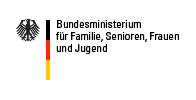Organisation / Organisational development
Organisation / Organisational Development
What is generally meant by the term organisation is an institution as a social entity with its own social system oriented to its objectives and undertaking its tasks. Many functions within organisations are allocated in a gender-specific way and behaviour is often regulated by gender-stereotyping role expectations.
Organisations in administration, industry and civil society are frequently permeated by masculine and heterosexual norms which impact work organisation. The associated preferential treatment of one gender is frequently not even perceived as discrimination. The opportunity to reach a certain influential position in an organisation is often more restricted for women than for men. A gender neutral self image in the organisation mostly needs to be supported by relevant external structures. As this can be seen in the structure of organisations, researchers say that organisations have a gender. These engendered structures make it difficult to take account of gender aspects systematically in the organisation’s development.
Organisational Development (OD) is the continuous, active shaping of processes and structures in an organisation in order to increase their effectiveness and health by, for instance, making staff at all levels aware of their responsibility for costs. External consultancy services are often brought in to support Organisational Development. At the same time, such a reorganisation, which is often very extensive, means actively involving staff and at the same time achieving an improvement in working conditions. Gender Mainstreaming in Organisational Development means including in it the goal of gender equality.
The strategy of Gender Mainstreaming gives Organisational Development as a whole and the tools of OD a gender equality orientation. The organisational principle here is to achieve a properly functioning organisational structure and physical shape where discriminatory impacts are suppressed and impacts promoting gender equality are achieved.
But Gender Mainstreaming is itself an organisational principle and needs an implementation concept. Once GM is realised, all actors must systematically integrate the aim of gender equality between women and men. Gender equality is a management task (top-down), but is at the same time actively realised by all staff as a cross-sectional task (bottom-up). Gender equality is then a defined and communicated organisational goal with clearly identified competencies in steering, corresponding process organisation, staff development that supports gender equality and respective specialist support in the policy fields and subject areas.
The organisation uses GM to give itself a foundation of gender knowledge and gender competent specialist staff, but existing gender equality actors, such as gender equality officers should also be actively included. For this, the organisation needs systematic knowledge management and, for instance, targeted training. Gender competent external consultants can give meaningful support in implementing GM. Other important means for implementing GM as part of Organisational Development include controlling and the deployment of tools.
There are several gender aspects which are frequently important for Organisational Development.
Here is a selection of important elements in Organisational Development:
Organisations in administration, industry and civil society are frequently permeated by masculine and heterosexual norms which impact work organisation. The associated preferential treatment of one gender is frequently not even perceived as discrimination. The opportunity to reach a certain influential position in an organisation is often more restricted for women than for men. A gender neutral self image in the organisation mostly needs to be supported by relevant external structures. As this can be seen in the structure of organisations, researchers say that organisations have a gender. These engendered structures make it difficult to take account of gender aspects systematically in the organisation’s development.
Organisational Development (OD) is the continuous, active shaping of processes and structures in an organisation in order to increase their effectiveness and health by, for instance, making staff at all levels aware of their responsibility for costs. External consultancy services are often brought in to support Organisational Development. At the same time, such a reorganisation, which is often very extensive, means actively involving staff and at the same time achieving an improvement in working conditions. Gender Mainstreaming in Organisational Development means including in it the goal of gender equality.
The strategy of Gender Mainstreaming gives Organisational Development as a whole and the tools of OD a gender equality orientation. The organisational principle here is to achieve a properly functioning organisational structure and physical shape where discriminatory impacts are suppressed and impacts promoting gender equality are achieved.
But Gender Mainstreaming is itself an organisational principle and needs an implementation concept. Once GM is realised, all actors must systematically integrate the aim of gender equality between women and men. Gender equality is a management task (top-down), but is at the same time actively realised by all staff as a cross-sectional task (bottom-up). Gender equality is then a defined and communicated organisational goal with clearly identified competencies in steering, corresponding process organisation, staff development that supports gender equality and respective specialist support in the policy fields and subject areas.
The organisation uses GM to give itself a foundation of gender knowledge and gender competent specialist staff, but existing gender equality actors, such as gender equality officers should also be actively included. For this, the organisation needs systematic knowledge management and, for instance, targeted training. Gender competent external consultants can give meaningful support in implementing GM. Other important means for implementing GM as part of Organisational Development include controlling and the deployment of tools.
There are several gender aspects which are frequently important for Organisational Development.
Here is a selection of important elements in Organisational Development:
erstellt von Administrator
—
zuletzt verändert:
02.01.2010 20:07






